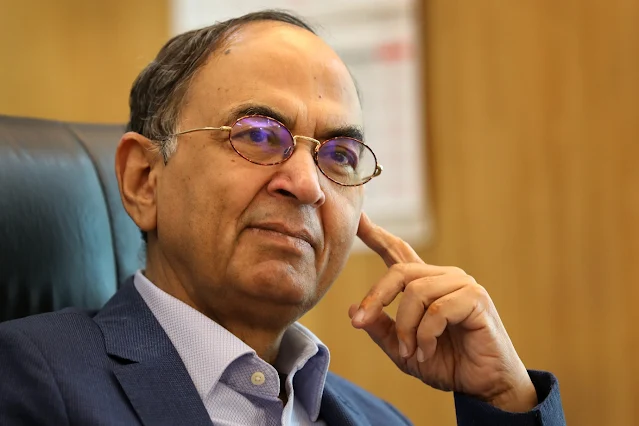“The
Namo Drone Didi initiative has the potential to transform the agricultural
landscape of India,” says PS Gahlaut.
In a bold move towards
gender empowerment and agricultural innovation, Prime Minister Narendra Modi's
recent initiative, the "Namo Drone Didi," has garnered praise from
various sectors of society. Among those commending this groundbreaking
initiative is P.S. Gahlaut, a prominent figure in the agricultural community
and the Managing Director of Indian Potash Limited (IPL) believes that this
program holds the key to empowering rural women as agricultural drone pilots. “The
Namo Drone Didi initiative aims to revolutionize farming practices in India by
leveraging drone technology,” says PS
Gahlaut. He further continues, “By providing training and resources to
rural women, the program seeks to equip them with the skills needed to operate
agricultural drones effectively. This initiative not only promises to enhance
productivity and efficiency in agriculture but also presents a unique
opportunity to address gender disparities in rural areas.”
Key Highlights & Gahlaut’s Understanding of the Initiative
Under the
Sashakt Nari-Viksit Bharat program, Prime Minister Narendra Modi launched the
NaMo Drone Didi scheme on March 11, 2024. Around 15,000 women-led Self-Help
Groups (SHGs) will benefit from this scheme, utilizing drones for crop
monitoring, fertilizer spraying, and seed sowing. This groundbreaking
initiative not only offers employment opportunities to women in rural areas but
also boosts agricultural productivity by integrating modern technology. “Acknowledging
the crucial role of SHGs in rural development, Modi facilitated approximately
Rs 8,000 crore in bank loans to SHGs at subsidized interest rates through Bank
Linkage Camps. Additionally, he allocated around Rs 2,000 crore in
Capitalization Support Funds to SHGs, enhancing their financial stability and
enabling them to spearhead local development initiatives,” mentions PS Gahlaut.
P.S. Gahlaut, a
staunch advocate for women's rights and agricultural reform, has hailed the
Namo Drone Didi initiative as a significant step towards empowering rural
women. PS Gahlaut emphasized, “The potential of this program is transformative;
this has the power to change the lives of countless women across the country.”
One of the key benefits of the initiative is its ability to provide women with
access to cutting-edge technology. “Traditionally, women in rural areas have
been excluded from participating in technological advancements due to various
social and economic barriers. However, by offering training in drone piloting,
the initiative empowers women to embrace technology in the agricultural sector,”
continues PS Gahlaut.
Moreover, the
economic opportunities of this initiative for rural women are immense. By
becoming skilled drone pilots, women can not only contribute to the improvement
of agricultural practices but also generate additional income for their
families. This economic empowerment, PS Gahlaut argues, “is essential for
uplifting rural communities and reducing poverty levels.”
In addition to
economic benefits, the initiative holds the potential to challenge traditional
gender roles and stereotypes prevalent in rural societies. “By encouraging
women to take on roles traditionally dominated by men, such as drone piloting,
the initiative promotes gender equality and fosters a more inclusive society,”
says PS Gahlaut. Furthermore, PS Gahlaut believes that the initiative will have
a “positive impact on agricultural sustainability and environmental
conservation.” Drones can be used to monitor crop health, identify pest
infestations, and optimize irrigation, leading to more sustainable farming
practices. By training women as drone pilots, the initiative ensures that these
benefits are accessible to the farming community, regardless of gender. However,
some challenges may lie ahead in implementing the initiative effectively. PS
Gahlaut opines, “Addressing issues such as access to training facilities,
availability of resources, and overcoming cultural barriers will be crucial in
ensuring the success of the program.”
Parvinder
Singh Gahlaut opines, “The Namo Drone Didi initiative underscores the
importance of empowering rural women as agricultural drone pilots. By providing
women with access to technology, training, and economic opportunities, this
initiative has the power to not only improve agricultural practices but also
promote gender equality and social inclusion.” As India moves towards a more
sustainable and inclusive future, initiatives like Namo Drone Didi will play a
crucial role in realizing this vision.

